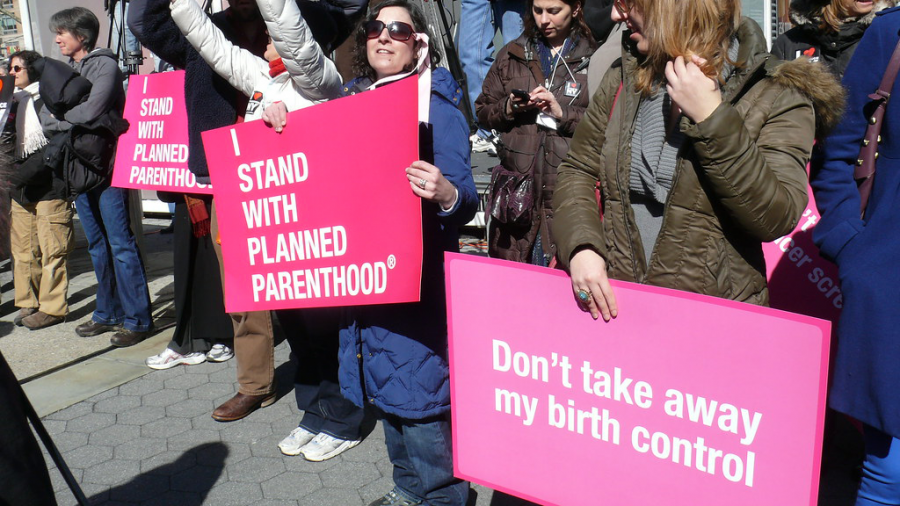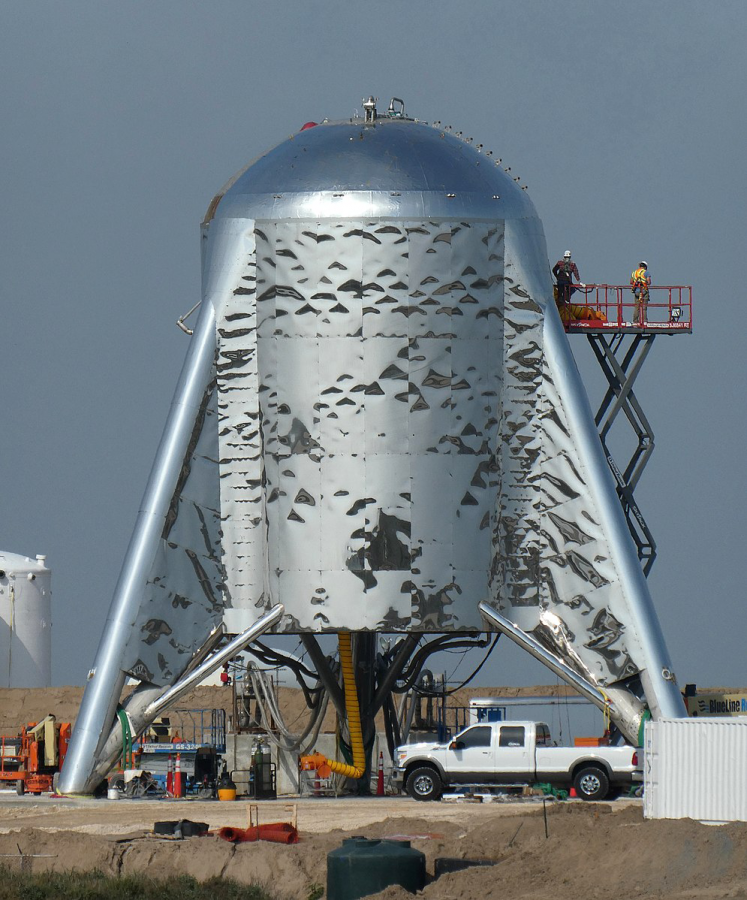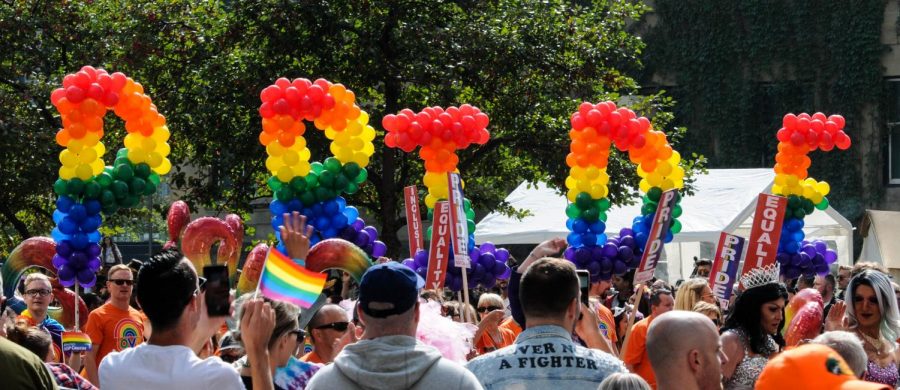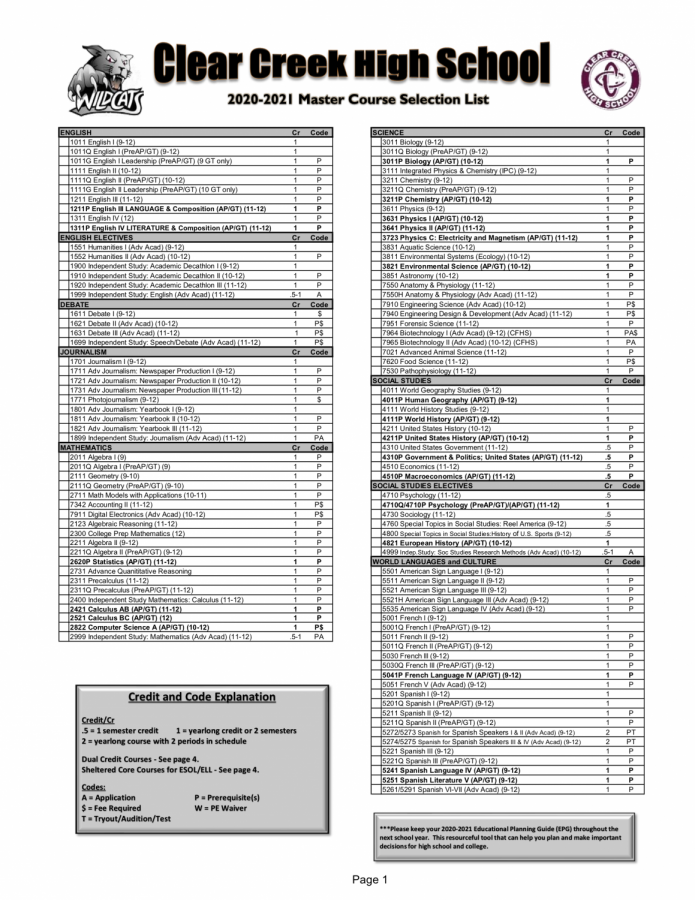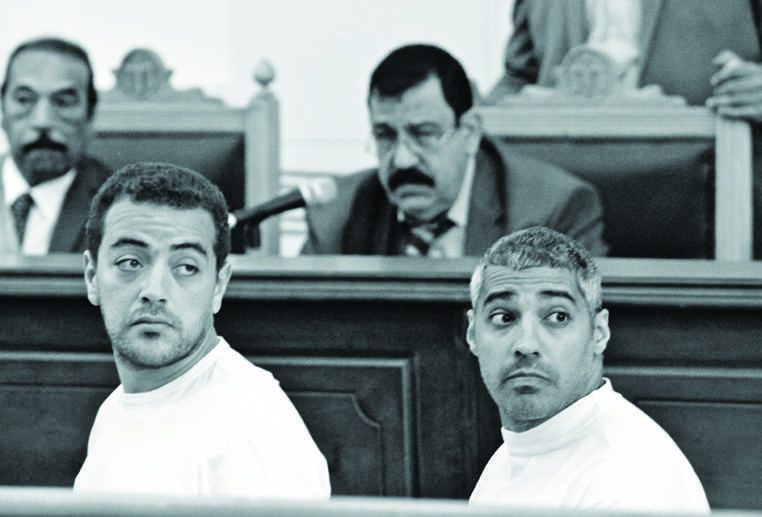Journalist released from Cairo prison after 400 days
Cameraman Baher Mohamed, left, and Mohamed Fadel Fahmy, the Cairo bureau chief for al Jazeera English, look at reporters sitting behind them Monday, March 31, 2014, as Judge Mohamed Nagy listens to the defendants' complaints about the conditions they are being held in. Three Al Jazeera journalists, including Australian Peter Greste (not pictured) are standing trial on terror charges. (Amina Ismail/MCT)
April 7, 2015
After being detained for 400 days, Al Jazeera foreign correspondent Peter Greste was released from a Cairo prison with the approval of Egyptian president Abdel Fattah el-Sisi. Greste, along with his colleagues Mohammed Fahmy and Baher Mohamed, were detained during protests in December 2013; Fahmy and Mohamed remain in prison.
According to Cairo law, foreigners who are detained in prison may be deported with the approval of the president. Greste applied for deportation and was eventually permitted.
“There was a mix of emotion boiling inside,” Greste said. “Sense of relief and excitement, but a stress of having to say goodbye to my colleagues.”
He was reunited with his family and is now living with his brother in Cyprus, and will return to Australia at a later date.
The three were detained on December 29, 2013, during a police raid in Cairo. After a military coup, which ousted president Mohammed Morsi, Egyptian police cracked down on protesters against the coup, who mainly consisted of members of the Muslim Brotherhood, a group banned by law from Egypt. The three journalists, who were covering the protests for Al Jazeera, were arrested and charged with “aiding terrorists” and being a part of the Muslim Brotherhood. In June 2014, the journalists’ trial took place; Greste and Fahmy were sentenced to seven years in prison, and Baher to 10.
After the creation of the foreign deportation law in November 2014, the men were granted a retrial, and Greste was soon released.
However, Fahmy has not yet received approval from the president, and Mohamed is unable to apply because he is an Egyptian citizen. According to some reports, Fahmy, who is a dual citizen of Canada and Egypt, may have to renounce his Egyptian citizenship in order to be released.
“We will not rest until Baher and Mohamed also regain their freedom,” a representative of Al Jazeera Network said. “The Egyptian authorities have it in their power to finish this properly…and that is exactly what they must do.”
Greste and his family also advocate for the prompt release of Fahmy and Mohamed.
“I feel incredible angst about my colleagues, leaving them behind,” Greste said. “Amidst all this relief, I still feel a sense of concern and worry. If it’s appropriate for me to be free, it’s right for all of them to be freed.”
After his return, Greste revealed the struggle of living in an Egyptian prison for over a year.
“I made a very conscious effort to…try and keep fit, running in a very limited space, to keep up an exercise program, to keep mentally fit with study and spiritually fit too with meditation,” Greste said.
When he was told that his deportation appeal had been approved, Greste was astonished, and felt bittersweet about leaving the prison, as well as his friends, behind.
“It was a really difficult moment walking out and leaving the prison, saying goodbye to those guys, not knowing how much longer they will have to put up with this,” Greste said. “I’ve got to know and accept Baher and Mohamed as family; they’re my brothers.”
Greste expressed his anguish for the two extraordinary men he was forced to leave behind.
“Mohamed Fahmy is an extraordinary professional, a dedicated journalist, very passionate and a strong-willed character,” Greste said. “Baher is one of the most amazing family men I’ve ever met. If anyone’s suffered out of all of this, it is Baher; he has a wife, and one of his children was born while he was in prison.”
As of now, a retrial has been granted to Fahmy and Mohamed, though it is unclear when the trial will take place.




